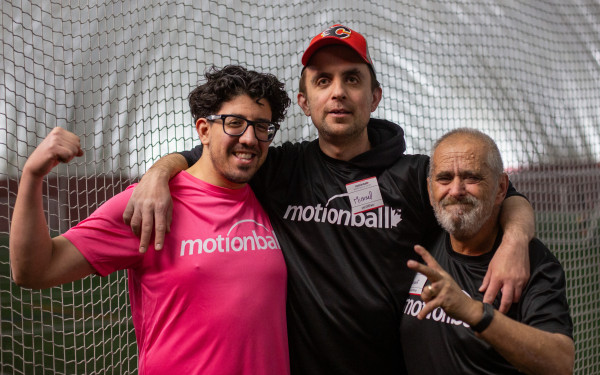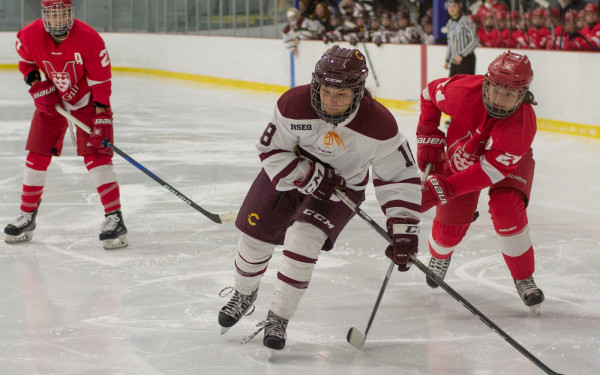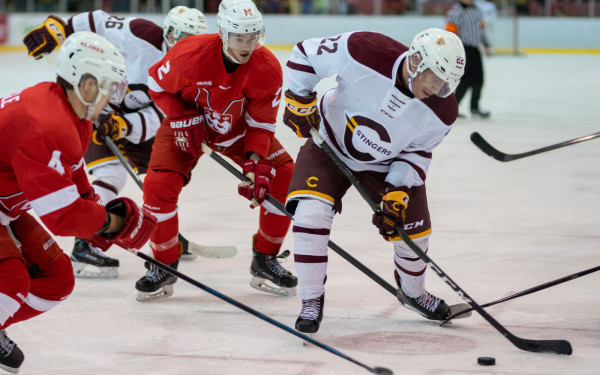The domino effect of COVID-19 on athletic therapy students
How student-therapists are getting by in a pandemic
Athletic therapy students worry for their future as COVID-19 has affected the quality of their practical studies.
“We’re a hands-on program and we're not getting the hands-on we need,” said Emily Gaudet, a third-year Athletic Therapy student at Concordia.
Athletic therapy is a four-year program that combines theoretical learning with internships to give students experience working with the public. Half of the internships require students to follow a sports team and treat athletes on the field while the other half involves treating the public in a clinical setting.
Since the pandemic began, the internship coordinators for the program struggled to find placements for students and the situation only worsened when the red zone restrictions came into effect. The restrictions banned sports teams in schools and many clinics closed—this left AT students without a placement.
“Their internship experience has not been to the standards of which they have been in the past,” said Jacqueline Camley, an AT internship coordinator. “We just don’t physically have enough space for all the students to be placed at internships, and they have to complete them.”
Students that were able to retain their internships were grateful despite working at a reduced capacity.
“I’m honestly in the minority who is actually getting to treat every week,” said Béatrice Bourdeau-Lévesque.
Bourdeau-Lévesque is a third-year AT student completing a clinical internship at Champlain College. She was able to continue working this semester, but has seen fewer athletes than expected and will likely work less than the 400 hours most internships require.
“We definitely aren’t as comfortable, I would say, as other years are because we're not getting that every week, hands-on experience,” said Bourdeau-Lévesque.
Internships are meant to help students link the theoretical with the practical aspects of their studies, said Gaudet. And the possibility that some students will spend a year without treating patients will have negative effects.
“It does worry me in the future when it comes to treating and actually having the confidence to go through with things,” she said.
Gaudet was due to start her clinical internship in the winter semester at the PERFORM Centre, a student-run athletic clinic located on Concordia University’s Loyola campus.
PERFORM normally accepts the largest number of AT students for clinical internships but has been closed since March due to the pandemic. There is no official timeline for its reopening and Gaudet and her classmates have been advised that they will only be able to treat each other as practice starting in January 2021.
“The good thing is at least I’m not graduating this year,” said Gaudet.
Students in their final year of the program are facing the possibility of a delayed graduation; Zachary Sage is one of them. He was completing a clinical internship at Vanier College when the clinic closed in October. Since then, he has studied from home, unable to practice what he is learning.
“I was very confident in my trajectory probably until up about a month ago,” said Sage.
Sage knew at a young age that this was his dream job. Having grown up in the Middle East, he moved to Montreal on his own to pursue his studies. But now he is concerned about the uncertainty surrounding his profession and is rethinking his career choice.
“The security of what I want to do has kind of become more and more important,” he said. If this year’s students are delayed in their graduation, Sage said they will have to wait four months to take their licensing exams, which only happens in June and November every year.
Lack of job security and a potentially saturated applicant pool has students like Sage worried for their future. But the biggest issue they face is: what will happen to athletic therapists if sports teams don’t return?
“Our whole profession is based on sports and injury management,” said Bourdeau-Lévesque. “But if there are no athletes to treat, then a lot of us won't really have a job.”
“The world isn’t going to resume like it was before,” said Gaudet. “As we learn the protocols for emergency intervention, all of them are changing.”
If students are unable to complete their internships, there is a potential for every cohort to be delayed in their graduation, said Camley.
“The pandemic has affected us from a domino standpoint,” said Camley. “We’ve tried to come up with plans A to Z and plans A to H have failed so far.” Until the government notifies schools of the restrictions for 2021, Camley, her department, and the AT students at Concordia are at a standstill.

1_900_600_90.jpg)



4_600_375_90_s_c1.jpg)

